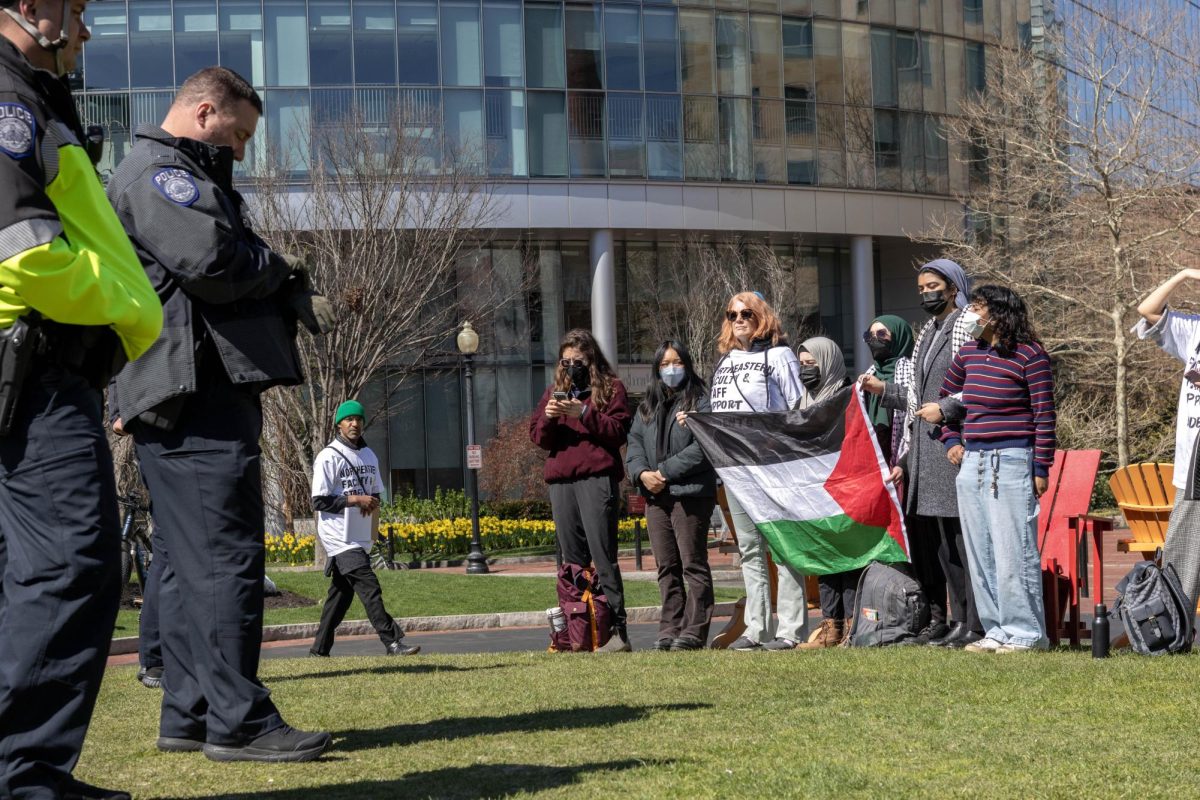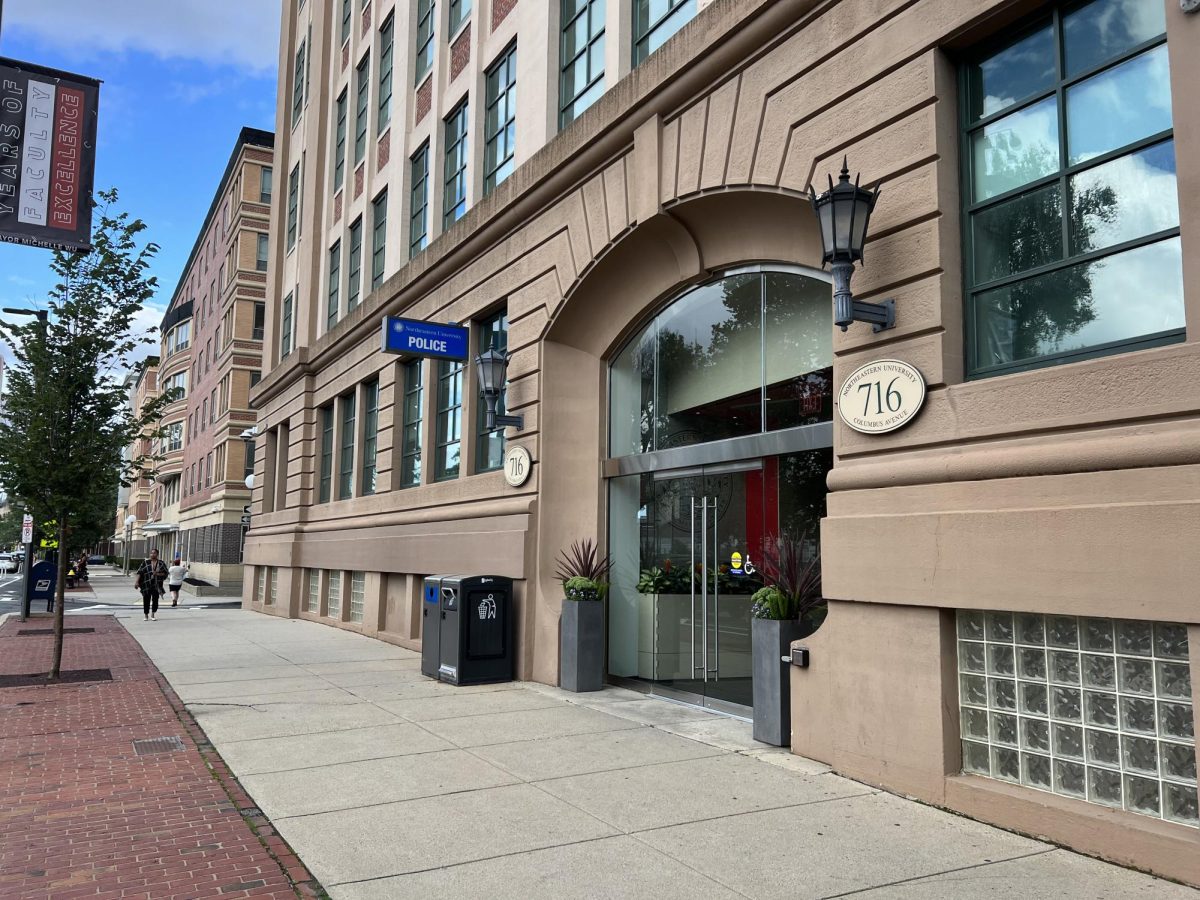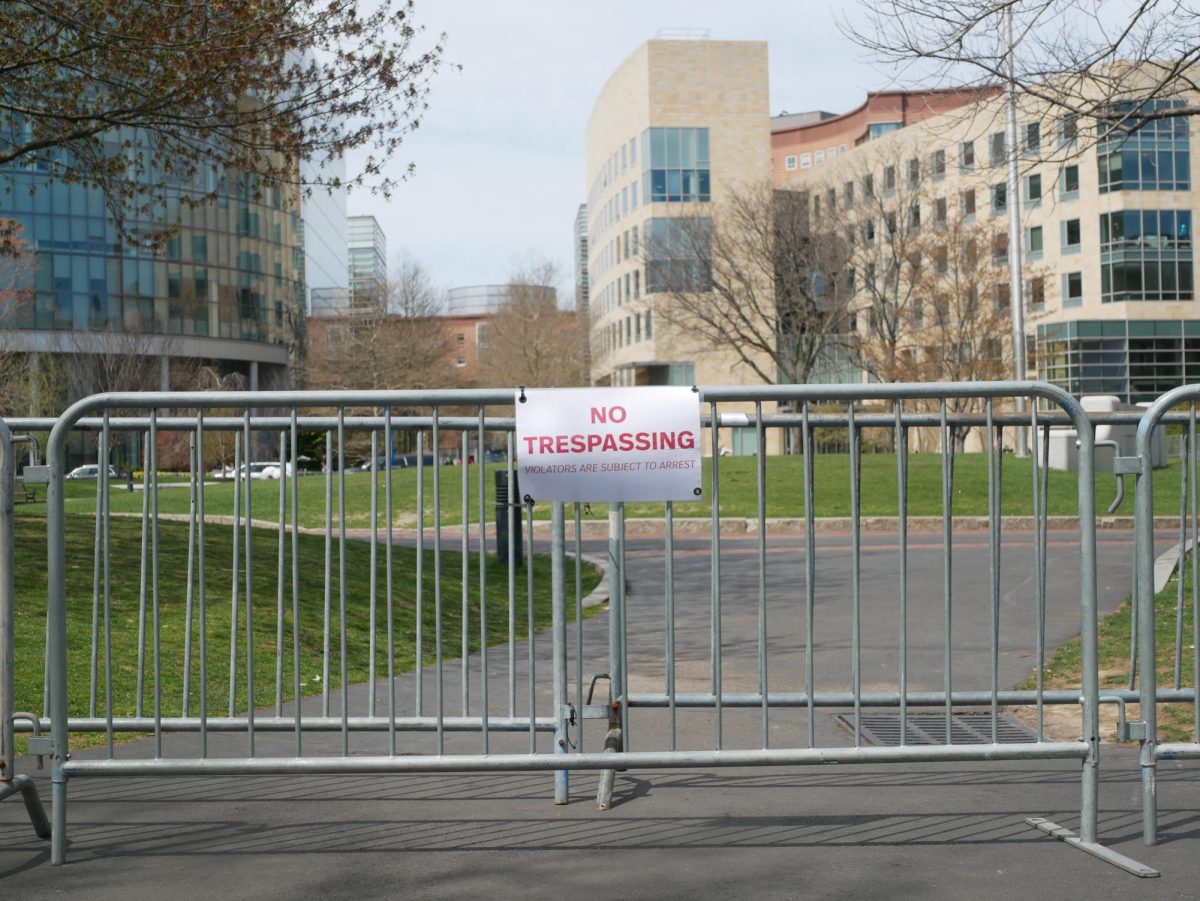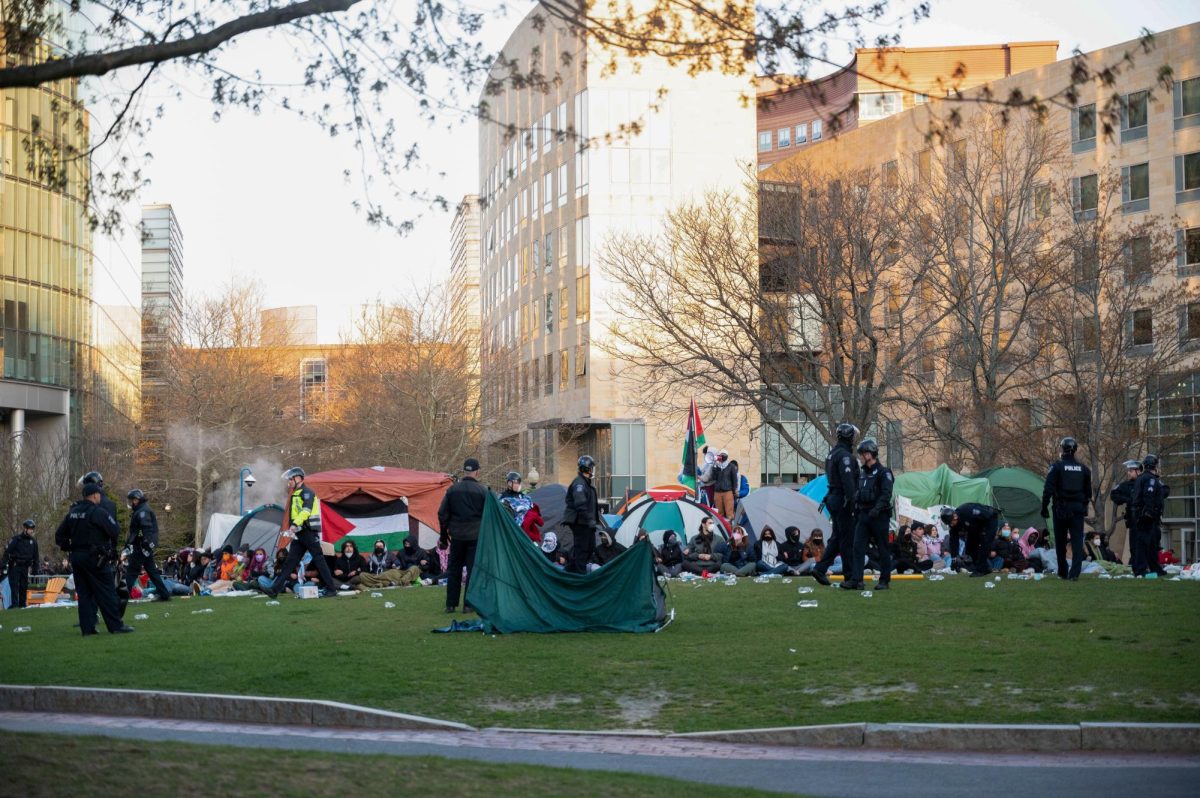Northeastern University Police Department sergeants, sergeant detectives and detectives voted in favor of unionizing earlier this month, according to documents from the National Labor Relations Board.
The Northeastern University Police Department, or NUPD, bargaining unit voted to be represented by the American Coalition of Public Safety in a Sept. 11 election, according to a Notice of Representation document released on the National Labor Relations Board, or NLRB, website Sept. 21. The document noted that “no timely objections” were filed by the university, certifying the American Coalition of Public Safety as the representative of the NUPD unit in bargaining talks the university is mandated to partake in.
On Sept. 8, the university filed a request for review of the NLRB’s decision and direction of election, citing that the regional director of the case “either misunderstood the evidence, misrepresented it, or simply ignored it — or a combination of all three — and misapplied the law.” The university reiterated its original arguments in opposing the election, saying the sergeants and sergeant detectives have independent judgment when issuing disciplinary and supervisory actions which would disqualify them from unionizing.
On Sept. 15, the American Coalition of Public Safety filed a brief in opposition to the request for review, arguing that the university did not meet its burden of proof to show sergeants had supervisory status. Employees with supervisory status, or the ability to impose disciplinary actions and direct other employees using ‘independent judgment,’ are not protected under the National Labor Relations Act.
“The University now seeks a second bite at the proverbial apple, asking the Board to engage in the fact-finding that the Regional Director already completed correctly,” the opposition brief reads.
The Sept. 21 documents included a “Notice of Bargaining Obligation,” which legally requires the university to “refrain from unilaterally changing bargaining unit employees’ terms and conditions of employment” after the date of election even if objections are raised. According to the notice, the university can change terms after the election and before an official contract is reached as long as the university gives sufficient notice of the proposed changes and negotiates with the bargaining unit in good faith.
The NLRB authorized the bargaining unit to hold an election Aug. 17 following challenges by the university that claimed sergeants had supervisory status. The NLRB ruled the university’s arguments were “not persuasive.” The bargaining unit, which is comprised of 11 sergeants, two sergeant detectives and three detectives, signed a petition to hold an election in February.
It was unclear why NUPD sergeants and sergeant detectives sought representation and what terms they would pursue in bargaining talks.
The notice of NUPD sergeants voting to unionize came the same day as 94% of voters with the Graduate Employees of Northeastern University chose to be represented by the United Auto Workers Union. Graduate students have faced repeated challenges to their unionizing efforts from the university, causing the vote to be delayed for about eight years.
Though winning an election is a significant step in acquiring union status, it can sometimes take years to reach a contract, if it is ever successfully negotiated. A recent study showed that only 37% of bargaining units achieved a first contract within 12 months of certification, increasing slightly to 57% within 24 months.
The study also found that “employer opposition has a significant, negative effect on the likelihood of unions achieving a first contract” and that “employers often take advantage of the delay and lack of punitive measures inherent in the NLRB process to avoid signing first contracts.”
09031d4583b5a09c













